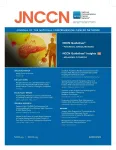Genetic predisposition to schizophrenia may increase risk of psychosis from cannabis use
2021-04-13
(Press-News.org) It has been long been known that cannabis users develop psychosis more often than non-users, but what is still not fully clear is whether cannabis actually causes psychosis and, if so, who is most at risk. A new study published in Translational Psychiatry by researchers at the Centre for Addiction and Mental Health (CAMH) and King's College London helps shed light on both questions. The research shows that while cannabis users had higher rates of psychotic experiences than non-users across the board, the difference was especially pronounced among those with high genetic predisposition to schizophrenia.
"These results are significant because they're the first evidence we've seen that people genetically prone to psychosis might be disproportionately affected by cannabis," said lead author Dr. Michael Wainberg, Scientist the Krembil Centre for Neuroinformatics at CAMH. "And because genetic risk scoring is still in its early days, the true influence of genetics on the cannabis-psychosis relationship may be even greater than what we found here."
Using data from the UK Biobank, a large-scale biomedical database containing participants' in-depth genetic and health information, the authors analyzed the relationship between genetics, cannabis use and psychotic experiences across more than 100,000 people. Each person reported their frequency of past cannabis use, and whether they had ever had various types of psychotic experiences, such as auditory or visual hallucinations. The researchers also scored each person's genetic risk for schizophrenia, by looking at which of their DNA mutations were more common among schizophrenia patients than among the general population.
Overall, people who had used cannabis were 50 per cent more likely to report psychotic experiences than people who had not. However, this increase was not uniform across the study group: among the fifth of participants with the highest genetic risk scores for schizophrenia, it was 60 per cent, and among the fifth with the lowest scores, it was only 40 per cent. In other words, people genetically predisposed to schizophrenia were at disproportionately higher risk for psychotic experiences if they also had a history of cannabis use.
Notably, because much less is known about the genetics of schizophrenia in non-white populations, the study's analysis was limited to self-reported white participants. "This study, while limited in scope, is an important step forward in understanding how cannabis use and genetics may interact to influence psychosis risk," added senior author Dr. Shreejoy Tripathy, Independent Scientist at the Krembil Centre for Neuroinformatics, who supervised the study. "The more we know about the connection between cannabis and psychosis, the more we can inform the public about the potential risks of using this substance. This research offers a window into a future where genetics can help empower individuals to make more informed decisions about drug use."
INFORMATION:
ELSE PRESS RELEASES FROM THIS DATE:
2021-04-13
COLUMBUS, Ohio ¬- New data published by researchers at The Ohio State University Comprehensive Cancer Center - Arthur G. James Cancer Hospital and Richard J. Solove Research Institute (OSUCCC - James) suggests that an oral drug currently used in the clinical setting to treat neuromuscular diseases could also help prevent a common form of skin cancer caused by damage from ultraviolet-B (UVB) radiation from the sun.
While this data was gathered from preclinical studies, senior author Sujit Basu, MD, PhD, says preliminary results in animal models are very promising and worthy of immediate further investigation through phase I human studies. ...
2021-04-13
Studies show wearing masks and social distancing can contain the spread of the COVID-19 virus, but their combined effectiveness is not precisely known.
In Chaos, by AIP Publishing, researchers at New York University Tandon School of Engineering and Politecnico di Torino in Italy developed a network model to study the effects of these two measures on the spread of airborne diseases like COVID-19. The model shows viral outbreaks can be prevented if at least 60% of a population complies with both measures.
"Neither social distancing nor mask wearing alone are likely sufficient to halt the spread of COVID-19, unless almost the entire population adheres to the single measure," author Maurizio Porfiri said. "But if a significant fraction of the ...
2021-04-13
Extremely precise measurements are possible using atom interferometers that employ the wave character of atoms for this purpose. They can thus be used, for example, to measure the gravitational field of the Earth or to detect gravitational waves. A team of scientists from Germany has now managed to successfully perform atom interferometry in space for the first time - on board a sounding rocket. "We have established the technological basis for atom interferometry on board of a sounding rocket and demonstrated that such experiments are not only possible on Earth, but also in space," said Professor Patrick Windpassinger of the Institute of Physics at Johannes Gutenberg University Mainz (JGU), whose team was involved in the investigation. The results of their analyses have been ...
2021-04-13
Scientists at the Walter Reed Army Institute for Research demonstrated the potential of a novel blood test for cathepsin B, a well-studied protein important to brain development and function, as an indicator for a range of disease states.
Cathepsin B plays an important role in the body, regulating the metabolism, immune responses, degradation of improperly produced proteins and other functions. Under certain conditions, such as metastatic cancers, infections, trauma and neurological disease, cathepsin B production is upregulated. Recent research published by WRAIR researchers highlighted the potential of cathepsin B as an indicator, or biomarker, of the severity of traumatic brain injury.
In this study, published in ACS Omega, researchers demonstrated an ultrasensitive ...
2021-04-13
It cannot be denied that, over the past few decades, the miniaturization of electronic devices has taken huge strides. Today, after pocket-size smartphones that could put old desktop computers to shame and a plethora of options for wireless connectivity, there is a particular type of device whose development has been steadily advancing: wearable biosensors. These tiny devices are generally meant to be worn directly on the skin in order to measure specific biosignals and, by sending measurements wirelessly to smartphones or computers, keep track of the user's health.
Although materials scientists have developed many types ...
2021-04-13
Researchers from North Carolina State University have found a way to fine-tune the molecular assembly line that creates antibiotics via engineered biosynthesis. The work could allow scientists to improve existing antibiotics as well as design new drug candidates quickly and efficiently.
Bacteria - such as E. coli - harness biosynthesis to create molecules that are difficult to make artificially.
"We already use bacteria to make a number of drugs for us," says Edward Kalkreuter, former graduate student at NC State and lead author of a paper describing the ...
2021-04-13
University of Maryland School of Medicine (UMSOM) researchers have shown that psilocybin--the active chemical in "magic mushrooms"-- still works its antidepressant-like actions, at least in mice, even when the psychedelic experience is blocked. The new findings suggest that psychedelic drugs work in multiple ways in the brain and it may be possible to deliver the fast-acting antidepressant therapeutic benefit without requiring daylong guided therapy sessions. A version of the drug without, or with less of, the psychedelic effects could loosen restrictions on who could receive the therapy, and lower costs, making the benefits of psilocybin more available to more people in need.
In all clinical ...
2021-04-13
The "three-body problem," the term coined for predicting the motion of three gravitating bodies in space, is essential for understanding a variety of astrophysical processes as well as a large class of mechanical problems, and has occupied some of the world's best physicists, astronomers and mathematicians for over three centuries. Their attempts have led to the discovery of several important fields of science; yet its solution remained a mystery.
At the end of the 17th century, Sir Isaac Newton succeeded in explaining the motion of the planets around the sun through ...
2021-04-13
PLYMOUTH MEETING, PA [April 13, 2021] -- The April 2021 issue of JNCCN--Journal of the National Comprehensive Cancer Network publishes new research from Memorial Sloan Kettering Cancer Center (MSK) and Gustave Roussy Institute, which suggests that baseline brain imaging should be considered in most patients with metastatic kidney cancer. The researchers studied 1,689 patients with metastatic renal cell carcinoma (mRCC) who had been considered for clinical trial participation at either of the two institutions between 2001 and 2019 and had undergone brain imaging in this context, without clinical suspicion for brain involvement. The researchers discovered 4% had asymptomatic brain metastases in this setting. This group was found to have a low median 1-year ...
2021-04-13
ITHACA, N.Y. - We've all seen them: political ads on television that promise doom gloom if Candidate X is elected, and how all your problems will be solved if you choose Candidate Y. And Candidate Y, of course, approves this message.
Beyond attempting to move a large swath of the population to vote one way or another, the seemingly constant bombardment of negativity in the name of our democratic process is anxiety-inducing, researchers have found.
"Many of my friends and family members wind up quite stressed out, for lack of a better word, during each election season," said Jeff Niederdeppe, professor in the Department of Communication in the College of ...
LAST 30 PRESS RELEASES:
[Press-News.org] Genetic predisposition to schizophrenia may increase risk of psychosis from cannabis use

